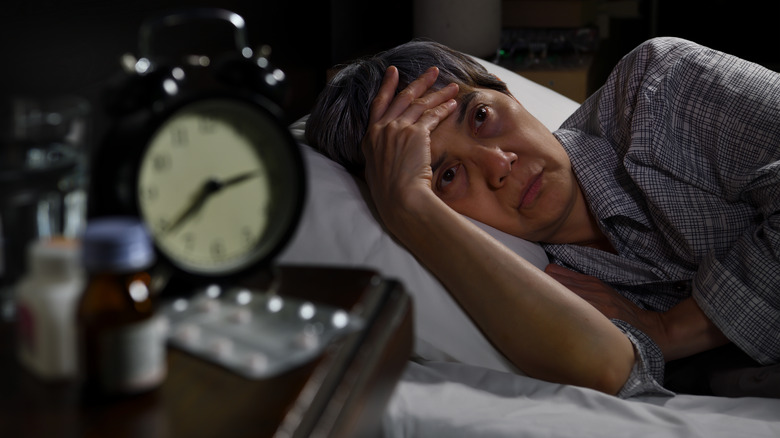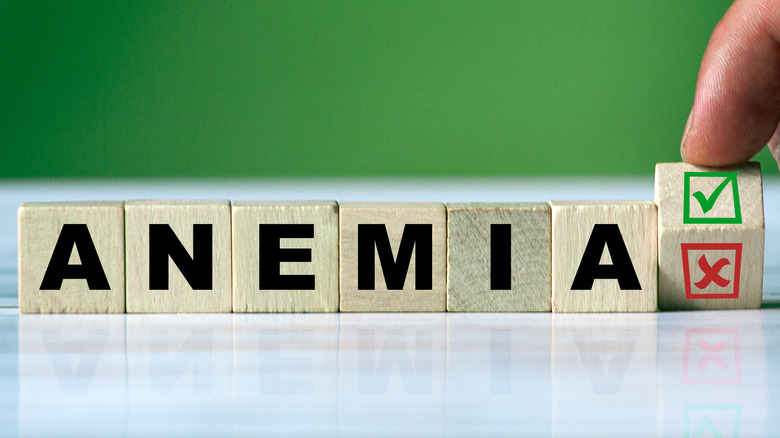Is There A Link Between Insomnia And Anemia?
Over 3 million adults in the U.S. have a blood disorder known as anemia, reports the American Society of Hematology. Characterized by a dysfunction of the red blood cells, the condition is diagnosed by measuring hemoglobin levels in our blood — a protein responsible for the transfer of oxygen throughout the body. Those diagnosed with anemia may experience symptoms such as dizziness, weakness, shortness of breath, accelerated heart rate, headache, chest pain, and more.
Prevalence rates for chronic insomnia are thought to be between 10% and 30% amongst adults, according to the Sleep Foundation. Older adults appear to be particularly susceptible to the condition, with as much as 48% of elderly individuals estimated to be living with insomnia. While a variety of both lifestyle and physiological factors can influence the development of insomnia, could anemia be one of them? A 2021 scientific analysis published in the Chinese Medical Journal suggests there could potentially be a relationship between the two.
Insomnia and anemia may have genetic overlap
Characterized by difficulty falling asleep, maintaining sleep, and feelings of insufficient rest, the study team looked at whether or not anemia increased one's odds of developing insomnia, as per the research. Over 12,600 adults in China were tested for anemia. For men, this meant having hemoglobin levels that fell below 13.0 g/dL. For women, anemia was determined if hemoglobin levels measured below 12.0 g/dL. Questionnaire data was also used to calculate the rates of insomnia amongst the participants. After factoring in variables, such as age, sex, chronic disease status, and plasma C-reactive protein concentrations (an indicator of inflammation), it was found that those diagnosed with anemia were more likely to have insomnia.
As noted by Sleep Review, the research further indicated that those diagnosed with prior anemia were over 30% more likely to develop insomnia six years later, as opposed to those who had not been diagnosed with anemia. While the study team could not definitively identify the cause for the relationship, the researchers suggest there may be a possible overlap shared between the two conditions through the MEIS1 gene. It has been linked to both insomnia, as well as iron metabolism in the body (via Chinese Medical Journal).


